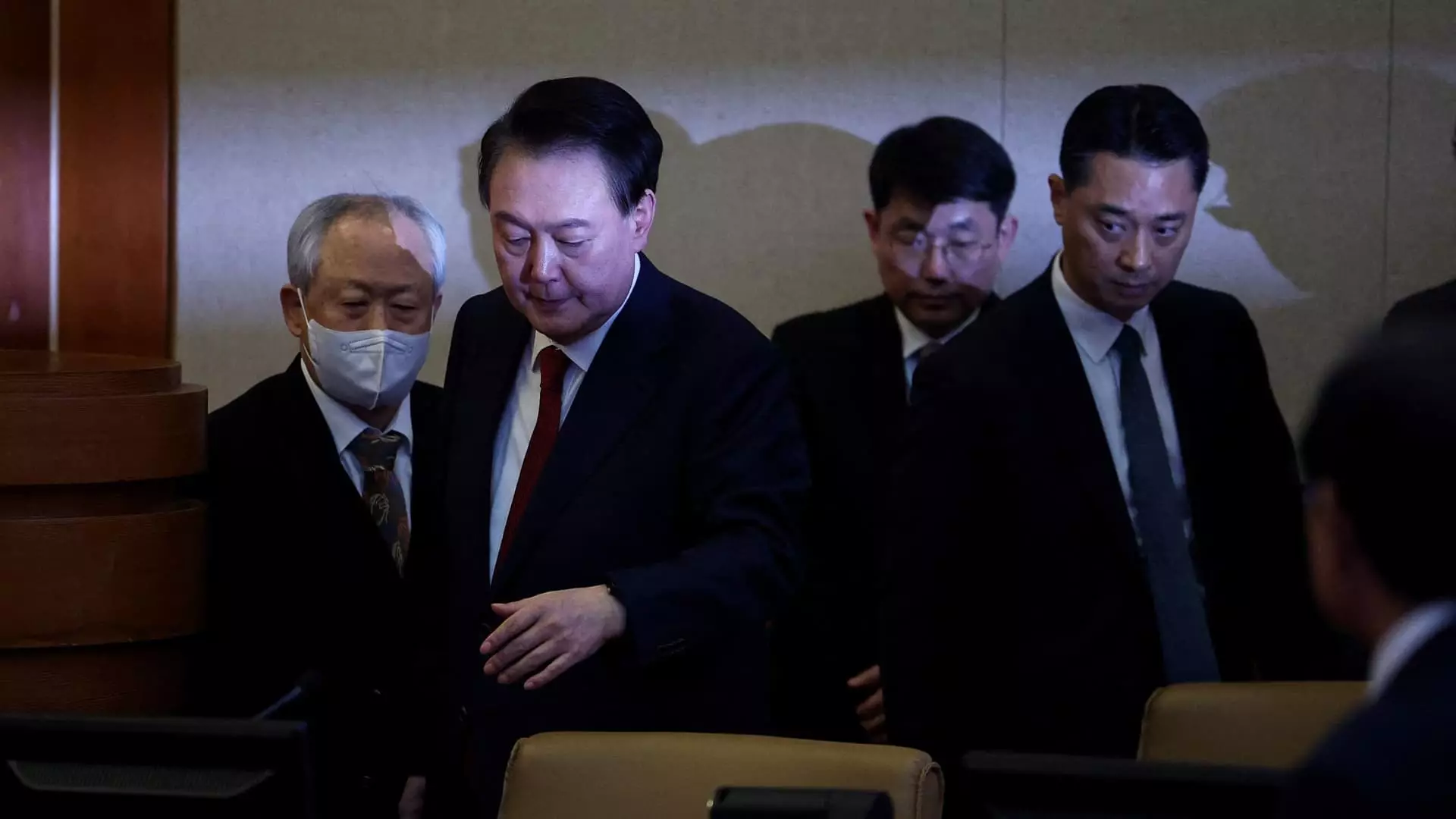The impeachment of President Yoon Suk Yeol by South Korea’s Constitutional Court signifies a critical moment in the nation’s political landscape. The unanimous ruling, a stark repudiation of Yoon’s controversial declaration of martial law, forces a re-evaluation of leadership in a democratic society. It is refreshing, yet sobering, to witness a judicial action that prioritizes legal integrity over political whims, especially when the potential for a democratic crisis lurks in the shadows.
Yoon’s urge to impose martial law in what he described as a protective maneuver against “North Korean communist forces” and “anti-state forces” raises serious questions regarding the motivations of a leader who should prioritize constitutional obligations over personal fears. His late-night broadcast evokes memories of autocratic regimes that exploit national security concerns to erode democratic norms. Such actions should serve as a wake-up call to citizens who might otherwise have complacently accepted authoritarian tactics disguised as patriotism.
The Role of the Constitutional Court
The decision by the Constitutional Court is a testament to the health of South Korea’s judicial system. The expertise and integrity displayed by Chief Justice Moon Hyung-bae and his colleagues affirm a commitment to maintaining the rule of law. They set a critical precedent: unlawful attempts at consolidating power will not be tolerated, regardless of the political context. The court’s clear assertion that Yoon’s actions did not constitute a national crisis is notably significant. It indicates that the judiciary is not merely an arm of the government but a fortress defending democratic values.
This court ruling also poses a stark challenge to the political environment in South Korea. The reinstatement of Prime Minister Han Duck-soo as acting president during the 60-day countdown to a new election ensures a semblance of stability amid uncertainty. However, one has to question whether Han can effectively bridge the divisions left by Yoon’s administration or if he too will be swept away by the tide of growing discontent among the populace.
Political and Economic Implications
In the wake of Yoon’s impeachment, the South Korean stock market has demonstrated mixed reactions, reflecting investor uncertainty and cautious optimism. A drop in the Kospi alongside an uplift in the Kosdaq raises an important narrative of resilience among smaller enterprises amid political turmoil. Furthermore, a strengthening of the South Korean won signals confidence in the nation’s macroeconomic stability, despite political upheaval undermining governance.
The upcoming presidential election presents an opportunity for the electorate to recalibrate their expectations. The challenge lies in choosing candidates who favor diplomacy, international cooperation, and civil liberties rather than intimidation or fear-based governance. This pivotal moment demands a leader with innovative visions to elevate collective well-being rather than fostering division.
As South Korea emerges from this presidential crisis, the urgency of choosing wisely in the impending election cannot be overstated. Voters must prioritize candidates capable of restoring trust between the government and the people—one that promises not to plunge the nation into the darkness of authoritarianism again.

Leave a Reply